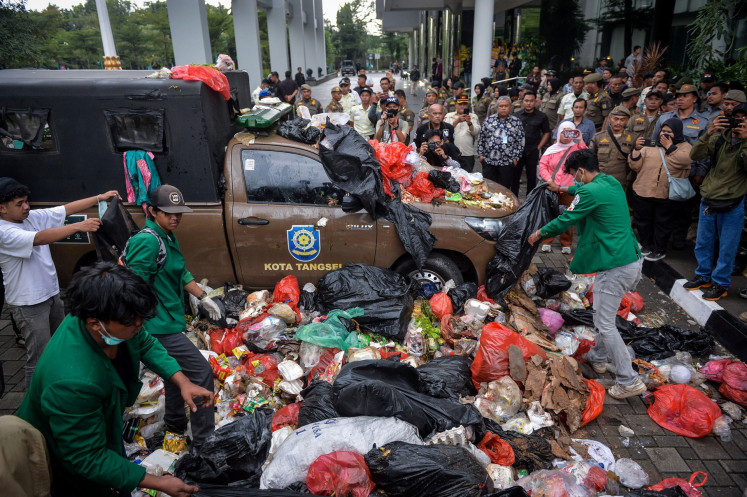Popular Reads
Top Results
Can't find what you're looking for?
View all search resultsPopular Reads
Top Results
Can't find what you're looking for?
View all search resultsRI palm oil industry could benefit from EU deforestation regulation
Indonesia can benefit from the EUDR if it addresses its historical legality issues, stops forest conversion and clarifies public-private control over supply chains.
Change text size
Gift Premium Articles
to Anyone
T
he European Union Regulation on Deforestation-free Products (EUDR) has triggered concerns in Indonesia, Malaysia and other developing countries that export agricultural commodities previously linked to deforestation and forest degradation.
The EUDR aims to ensure that products consumed by EU citizens do not contribute to deforestation or forest degradation worldwide after 2020. This requires operators and traders of seven commodities – beef, cocoa, coffee, palm oil, rubber, soy and wood – to conduct extensive due diligence throughout the supply chain before placing these products in the EU market.
The new law connects a national perspective on “legality”, with a globally applied standard forest definition (and cut-off date) as well as a burden of proof for importing businesses. In short, the EUDR requires no deforestation, legality and traceability for agricultural products imported into the EU.
So what do these three challenges mean for Indonesia as it strives to comply with the EUDR?
The first challenge is deforestation. There is a time lag of three to four years between forest conversion and production. So when the EUDR becomes operational in December 2024, virtually all palm oil from Indonesia will initially meet the deforestation-free requirement. The EU law’s cut-off year of 2020 for deforestation therefore benefits exporters of products, such as palm oil, to EU countries.
Since 2020, only 1 percent of oil palm production in Indonesia has taken place on plantations that have replaced forested land. This compares with 14 percent since 2010, and 54 percent from 1995 to 2000.
Yet oil palm development represented the single biggest sectoral contribution to deforestation in Indonesia over the past two years – 2021 and 2022. About 21 percent of total new plantations in that period were built on recently deforested land.



















